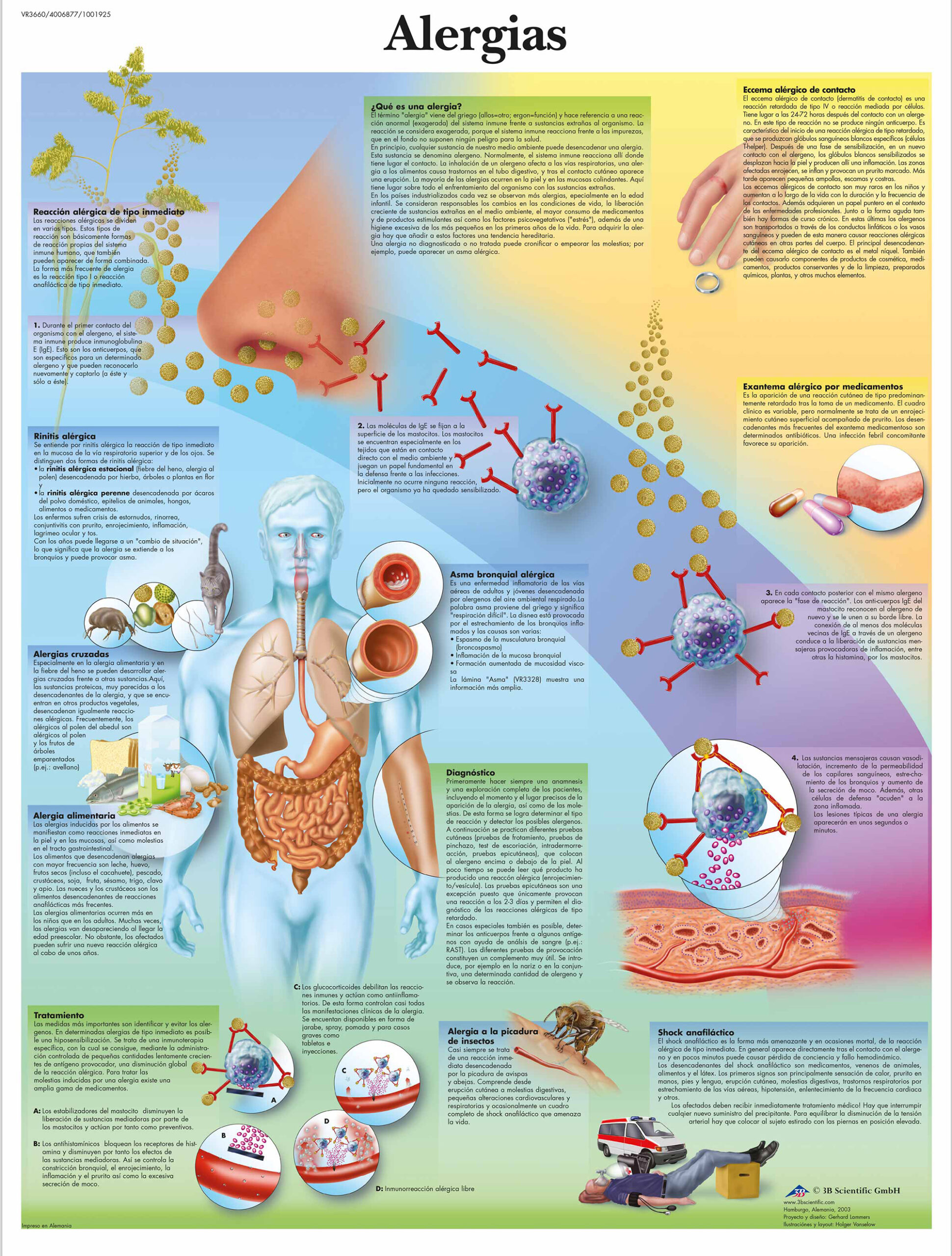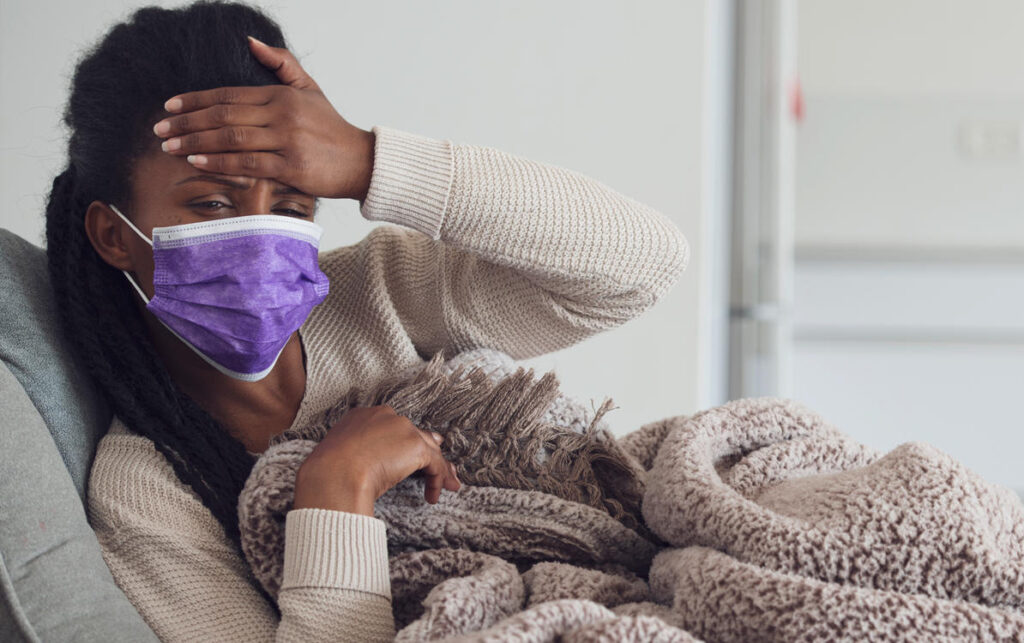
An allergy (or allergic reaction) is when the immune system mistakes a harmless substance for dangerous one and produces an antibody called “immunoglobulin E”, more commonly known as “IgE”

New York, Prepared by Ed Hosseinipour , senior clinical pharmacist This year is atypical in more than one way. Aside from the late warmup, allergy sufferers may have less symptoms due to the precautions we are taking to limit the spread of the coronavirus — COVID-19. One of the first therapies for allergy is the avoidance of allergic triggers.
Since we are all spending more time indoors at home and wearing masks when we go out, we are placing barriers between the pollen and ourselves. This may in turn decrease exposure to pollen and decrease the symptoms associated with allergic rhinitis (hay fever).
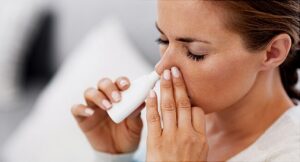
When symptoms do occur, there are a number of things we can do. Over-the-counter medications can be helpful. The second-generation antihistamines can control symptoms with minimal to no sedation. There are a number of steroid nasal sprays that are available over the counter as well. These sprays have an anti-inflammatory effect. They are not decongestants.
Decongestant nasal sprays can cause rebound stuffiness and actually make you worse. There are a number of prescription medications that can help hay fever stuffiness as well.
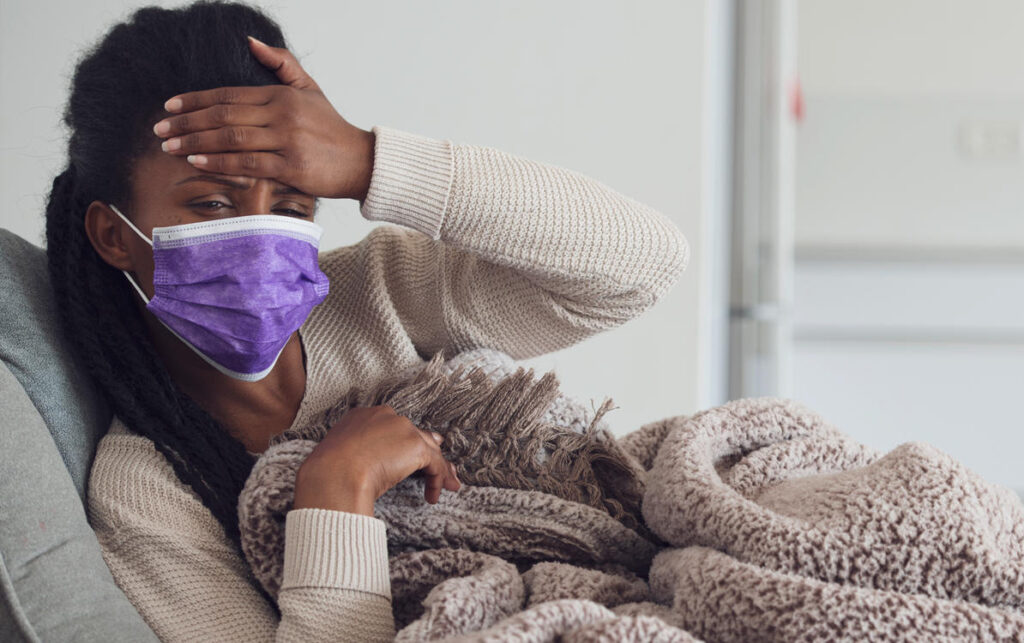
In order to be able to differentiate lets first understand allergies. no one knows for certain why certain people are allergic to certain things while others are not. We do know that allergies tend to run in families. If you have allergies, it’s very likely that at least one of your parents does too. Exposure to allergens at times when the body’s immune system is weak, such as after an illness or during pregnancy, may also play a role in the development of allergies. Although allergies are most common in children, they can occur at any age.
Sometimes allergies will go away, but they also can come back years later.
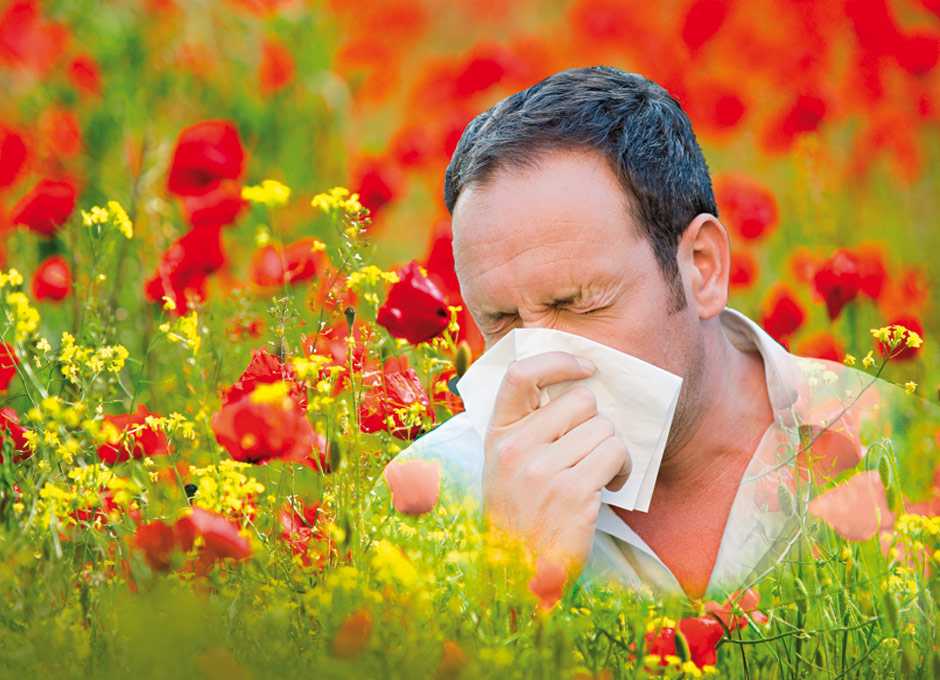
Below is more information about what causes your body’s response to certain allergens.
What Are Allergies? The immune system is a complex network of specialized organs and cells that helps defend your body against foreign invaders. When your body is exposed to outside elements like bacteria or viruses, your immune system produces protective antibodies and activated white blood cells to fight off these invaders.
An allergy (or allergic reaction) is when the immune system mistakes a harmless substance for dangerous one and produces an antibody called “immunoglobulin E”, more commonly known as “IgE”.
IgE is an antibody that protects us from very specific parasitic infections, however, those of us that live in developed countries are not exposed to these parasites and IgE is usually absent (or present at very low levels) in people who do not suffer from allergies.
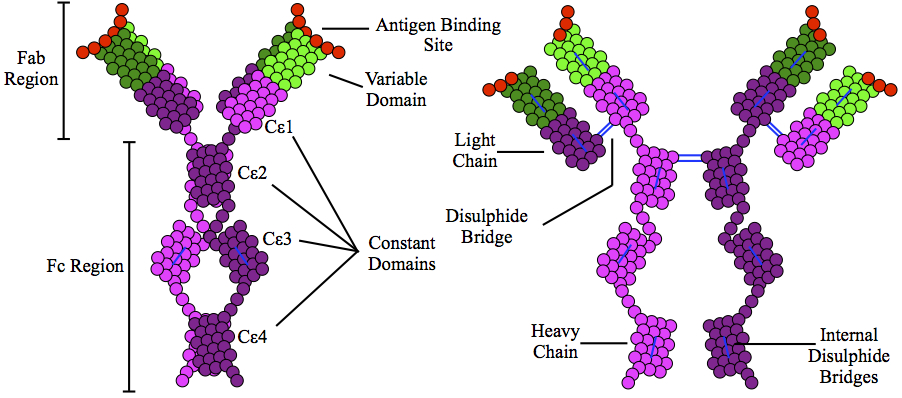
IgE is an antibody that protects us from very specific parasitic infections, however, those of us that live in developed countries are not exposed to these parasites and IgE is usually absent (or present at very low levels) in people who do not suffer from allergies.

What Happens In An Allergy Attack? When an allergic person is exposed to an allergen, IgE is produced to fight off the specific allergen. For example, if someone is allergic to cats and is exposed to a cat, then an “anti-cat” IgE antibody is produced.
If the same person is also allergic to pollen and comes in contact with pollen grains, then an “anti-pollen” IgE antibody will also be produced and so on. Each allergen will have a specific IgE antibody to fight off that specific trigger.
Each time IgE is produced, the IgE molecules attach themselves to mast cells that are found in large numbers in the eyes, nose, lungs, intestines, and immediately beneath the skin.
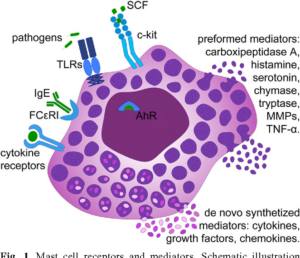
These mast cells contain many chemicals, including a substance called histamine which, when released into the body, can cause a runny nose, sneezing, watery eyes, itching, hives, and wheezing. These effects are recognized as allergy symptoms.
In some cases, reactions can occur in several places throughout the body. Welts or hives may appear, spasm in the lungs may cause coughing or wheezing, the throat, and tongue may swell – even anaphylaxis may occur.
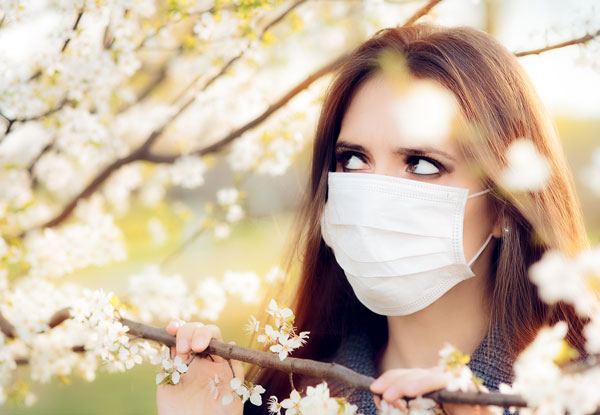
Allergy vs Covid-19
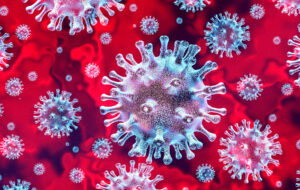
The Symptoms Of The Coronavirus Are According to the CDC, reported illnesses have ranged from mild symptoms to severe illness and death for confirmed coronavirus disease 2019 (COVID-19) cases. The following symptoms may appear 2-14 days after exposure, Fever, Cough, Shortness of breath
Coronavirus is spread through coughing, sneezing, and close personal contact. We recommend following the CDC guidelines and those of your local health department to prevent the spread of the virus.

Symptoms Of Allergies Are:
Symptoms of seasonal allergies range from mild to severe and occur seasonally.
The most common include sneezing, runny or stuffy nose, watery and itchy eyes, itchy sinuses, throat, or ear canals, ear congestion, postnasal drainage
Less Common Symptoms Include headache, shortness of breath, wheezing, coughing,
Allergies are caused by a response in the immune system and are not contagious. Medications can treat your symptoms, and immunotherapy can help those with allergies find relief.
How to Treat Allergies During a Pandemic

In the midst of a virus outbreak, it can be hard to get to a clinic for allergy treatment. The first thing to do is to stay away from whatever makes your symptoms flare-up.
You can also try over-the-counter allergy medicines. Check with your supermarket or drugstore to see if they deliver and have these medications in stock. Or order them online. If you have trouble finding them, or if you need something stronger like corticosteroids, call your doctor. They may be able to prescribe something over the phone. Some pharmacies deliver medications.
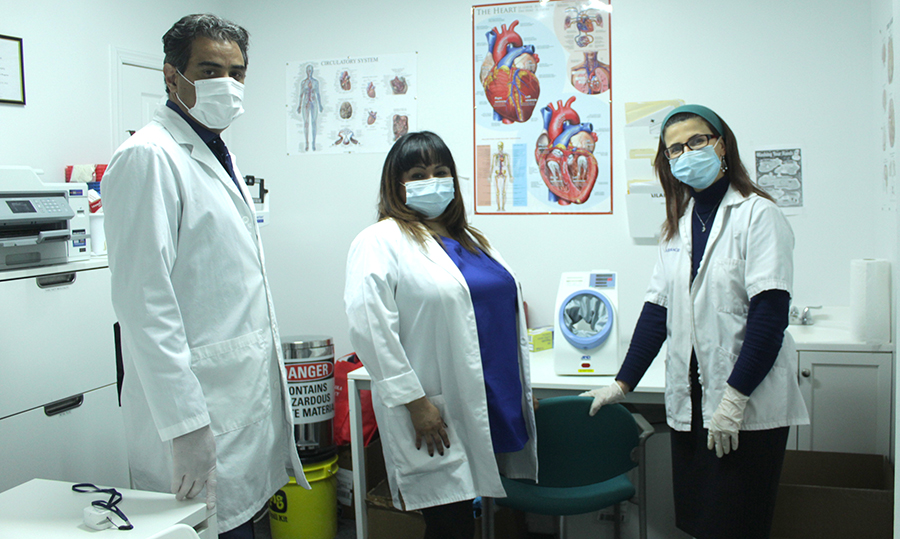
When social distancing or stay-at-home rules are in effect, always follow the COVID-19 safety steps recommended by public health officials: Stay away from others. Wash your hands often. Visit public places like stores only when you have to, especially if you’re in an area with lots of cases.
Overall, it is important that you seek medical assistance with a health professional in case of experiencing any symptoms which you are unsure about.

At BARON SPECIALTY PHARMACY, our professional clinical pharmacists are ready to assist you and direct to the correct path. Don’t hesitate to contact us for a free consultation [ENG]
